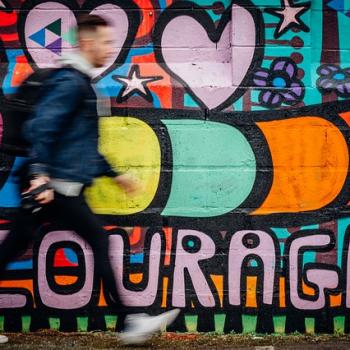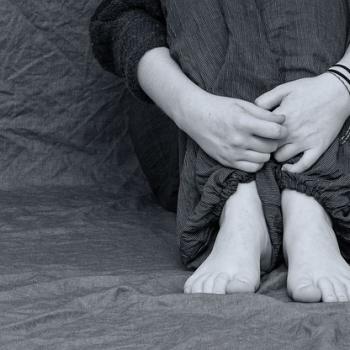
This is Day 11 of the #30Days30Writers 2016 Ramadan series.
By Sameera Qureshi
“Raise your hand if you’ve ever faked fasting when you’re on your period.”
I posed the question and then looked around the room of 25 seventh grade girls and saw that 80 percent of them had their hands raised. Some were looking directly at me, perhaps hoping that I’d understand why, while others had their gazes directed down towards the floor.
I was not shocked by the results of this particular group or the many others I’ve run on sexual health education with Muslim girls and women. There is a great amount of shame and stigma around many topics related to sexual health, especially that of menstruation. For something that has been endowed to girls and women as a blessing — the ability to create and sustain life within our own bodies — it’s shocking how often this topic is shunned from discussion circles within our communities and not to mention in our homes.
Speaking from my own experiences, growing up as an only female sibling with two brothers, I too have been guilty of acting shamefully during menstruation. To use the term shamefully is to mean that someone looks down upon themselves as lesser than, unworthy, and even dirty for menstruating. For many years during my menstrual cycle, I would wake up for suhoor and fajr, pretend to pray and breakfast with my family — despite the fact that I was not fasting.
There were times when my mom would vouch for me not being at the suhoor table by saying that I was sick or had a headache. I’d go to the basement to eat food during the day. As an adult, I’d head out of the house to eat while running errands or at work. While some of these practices may be seen as maintaining modesty during menstruation, they were all done under the auspices of shame rather than empowered decision making.
Had I known that menstruation is empowering, indicative of a new spiritual layer as an adult from an Islamic perspective, and that there were many ways to still connect with Allah — my experiences would have been quite different. I could have chosen to act differently than in the shameful fake-fasting way.
During the girls group, we dove into the religious perspectives of menstruation — namely, the rights that have been given to women during their monthly cycle. Girls and women who are menstruating are absolved of the obligation to pray and fast. What many girls especially don’t understand is that they can and should continue to worship in other ways during their menstrual cycle.
Generally speaking, when girls are taught about menstruation (typically from family members or friends), the “do’s and don’ts” are emphasized more so than “here are your other options.” Having spoken with and taught many teenage girls, it would be safe to say that a vast majority of them feel uncomfortable approaching their mothers and families members about menstruation.
If this topic is not spoken about or broached by parents, it is unfair to expect that girls will initiate the conversation themselves. Parents not talking about a subject often implies that it’s not to be spoken about. And thus, many of these girls learn by osmosis through their peers, the Internet or trial and error about physical, emotional and spiritual self-care during their menstrual cycle.
However, this information is not always accurate nor complete, to say the least. Nor does it afford them the opportunity to ask questions after they have digested the information.
Menstruation is not only physical in nature, despite this aspect being focused upon the most — it has a spiritual and emotional dimension as well. Girls and women need to learn self-care strategies around all three aspects of menstruation, especially during Ramadan, the holiest month of the year.
Body image, self-worth and having a healthy sexual identity are impacted by how a girl understands menstruation. Understanding one’s monthly cycle is empowering and leads girls and women to feel as though they are in control. This can trickle over to additional areas of sexual health self-care — understanding the importance of regular gynecological check-ups, seeking information about safe and healthy intimacy, exploring the concept of healthy relationships and so forth.
If young girls do not feel empowered or confident enough to seek information about a normal biological cycle in their body, it will be challenging for them to reach out in other realms of sexual health.
Not to mention that many Muslim women suffer silently from menstrual and/or sexual dysfunction and aren’t quite sure who to turn to for support. If we empower girls from a young age and arm them with a plethora of information and resources, we are creating pathways that makes it more than permissible to discuss any sexual health related matter with trusted adults.
The shame that girls and women feel around menstruation is not solely limited to this segment of sexual health. Speaking of sexual health, our communities are in a dire state on this topic. Apart from menstruation, we also don’t speak about sexual violence, creating safe and inclusive spaces for LGBTQ community members, what healthy relationships consist of, consent-based education and ensuring that our institutions and masjids have policies and protocols in place to protect survivors and hold perpetrators accountable.
While it is not incumbent on us to all be doing this work at the community level, it is our responsibility to become educated on these topics and at least practice creating safe spaces within our own family and friends circle. This includes men as well as women.
It’s time that both men and women place aside any shame related to menstruation and sexual health topics. Our faith tradition is rich in stories about honest and detailed questions that Muslims would ask of the Prophet (peace and blessings be upon him). We’ve definitely lost this within our own communities, and our faith tradition has been overshadowed by cultural stigma and shame.
So let’s use this Ramadan to become empowered to seek sexual health information as a means to enhance our spiritual, physical and emotional well being. Let’s not fake fasting anymore.
Sameera Qureshi is the Director of Education, Canada for HEART Women & Girls. For the last several years she led sexual health and sexual assault awareness programming for the Muslim community in Calgary and other Canadian communities. Most recently, she has moved to Washington, DC, where she hopes to continue similar programming. If anyone is interested in hosting an workshop or training in the DMV area (D.C., Maryland, and Virginia) for Muslims around sexual violence (i.e. across the lifespan and for any audience), please contact HEART at the web address above or comment on this post. She is blogger on the Heartfelt blog on Patheos Muslim.













